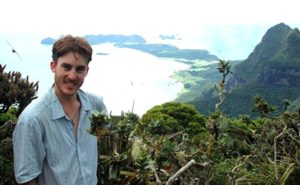Best friends or mortal enemies?: The complex ecological roles of Australia’s predators
Dr Euan Ritchie
Faculty of Science, Engineering & Built Environment
Deakin University
Why are feral animals running rampant? And why are some of our native species causing environmental headaches too? One significant reason is the lack of balance that now characterises our ecosystems. A clear way to improve this situation would be to return native top predators, in particular dingoes and Tasmanian devils, to landscapes where they once occurred. This would allow these species to resume their important ecological roles.
And why are some of our native species causing environmental headaches too? One significant reason is the lack of balance that now characterises our ecosystems. A clear way to improve this situation would be to return native top predators, in particular dingoes and Tasmanian devils, to landscapes where they once occurred. This would allow these species to resume their important ecological roles.
Scientific research strongly suggests dingoes not only kill cats and foxes, but they also instil fear in them. This means cats and foxes avoid areas and times where dingoes are most active. As a result dingoes can provide a 24-hour-a-day, seven-day-a-week pest control service, and largely for free! If we want to conserve our iconic and globally-unique wildlife then we need to work with, rather than against nature. Supporting more positive management of dingoes and returning Tasmanian devils to mainland Australia for their biodiversity benefits would be one of the best and most cost-effective actions policymakers could encourage now.
The resurgence of apex predators across Europe and North America (species such as wolves, bears, lynx and mountain lions), demonstrates that biodiversity change is not a one-way street. Indeed, few would have predicted a predator renaissance in Europe 50 years ago. Yet, European society has deemed that predators are important to conserve and they are actively restoring them to rewild their landscapes.
There are emerging signs that Australians are up to the task too. The western quoll, a species that once occurred in every mainland state (now restricted to southwestern Western Australia), was recently reintroduced to the Flinders Ranges, and is successfully reproducing. In this talk I will describe the complex interactions between Australia’s predators and their prey. This knowledge is vital if we are to address current and future biodiversity conservation issues.
Dr Euan Ritchie is a Eureka prize-winner in environmental research and senior lecturer in ecology within Deakin University’s Centre for Integrative Ecology. He applies ecological theory with good doses of fieldwork to seek solutions to the challenges of conserving biodiversity. He is an active and passionate science communicator, writing and speaking regularly on conservation-related issues.






